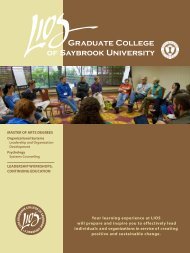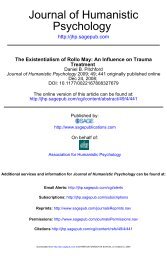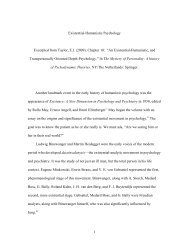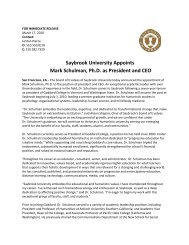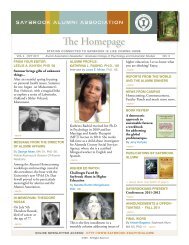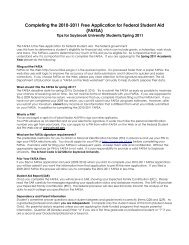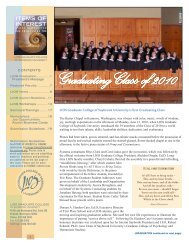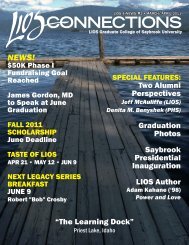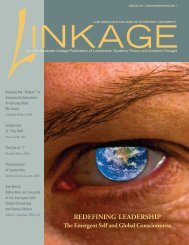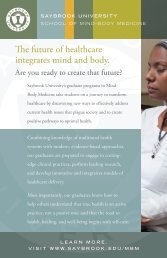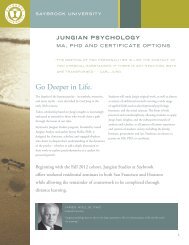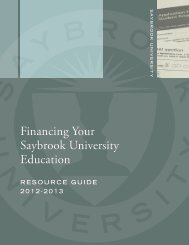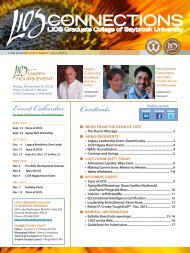Appendix F - Saybrook University
Appendix F - Saybrook University
Appendix F - Saybrook University
You also want an ePaper? Increase the reach of your titles
YUMPU automatically turns print PDFs into web optimized ePapers that Google loves.
PSYD 8100<br />
PSYD 8110<br />
PSYD 8120<br />
PSYD 8125<br />
Graduate Writing Workshop<br />
Students are provided with an overview of academic writing<br />
standards and expectations in general, and are oriented to graduate<br />
and professional standards for scholarly writing and APA format<br />
in particular. This course occurs at the first PsyD residential<br />
conference of the program. 0.0 credits.<br />
Psychotherapy Proseminar: Humanistic and<br />
Transpersonal Psychology<br />
Students are given an overview of basic growth-oriented theories<br />
such as humanistic, person-centered, existential, experiential,<br />
relational psychodynamic, Jungian, spiritual and transpersonal.<br />
Emphasis is on how the theories relate to each other. This proseminar<br />
provides students with an introduction to a range of<br />
humanistically-oriented perspectives for beginning to develop an<br />
awareness of their own evolving professional identities in terms<br />
of their stances and beliefs about psychotherapy, psychopathology,<br />
and professional practice. 2.0 credits.<br />
Psychopathology I<br />
From the historical perspective, this course provides a critical<br />
overview of theory, research and processes that have evolved<br />
into modern Western thinking about psychopathology.<br />
Attention is given to current diagnostic criteria and the utility of<br />
the DSM, as well as the biological, behavioral, sociocultural and<br />
intra-psychic determinant patterns of functional and dysfunctional<br />
human behavior. Students are encouraged to think broadly<br />
and dialectically about optimal development and pathology, in<br />
systems of personality and systems of modern Western cultural<br />
institutions. Special attention is paid to humanistic, cultural and<br />
other theoretical perspectives. 3.0 credits.<br />
Psychopathology II<br />
This course introduces students to humanistic critiques of the<br />
current dominant DSM-based model of psychological difficulty,<br />
and presents a critical evaluation of mainstream notions of psychopathology<br />
and its treatment. Included are social/philosophical<br />
critiques and contextual/community psychology perspectives,<br />
including a review of how societal factors such as racism, sexism,<br />
and economic inequality contribute to psychological dysfunction.<br />
Research challenging the effectiveness of psychotropic medica-<br />
276



